It’s EPIC: Clark opens new greenhouse to help U.S. agriculture, environment
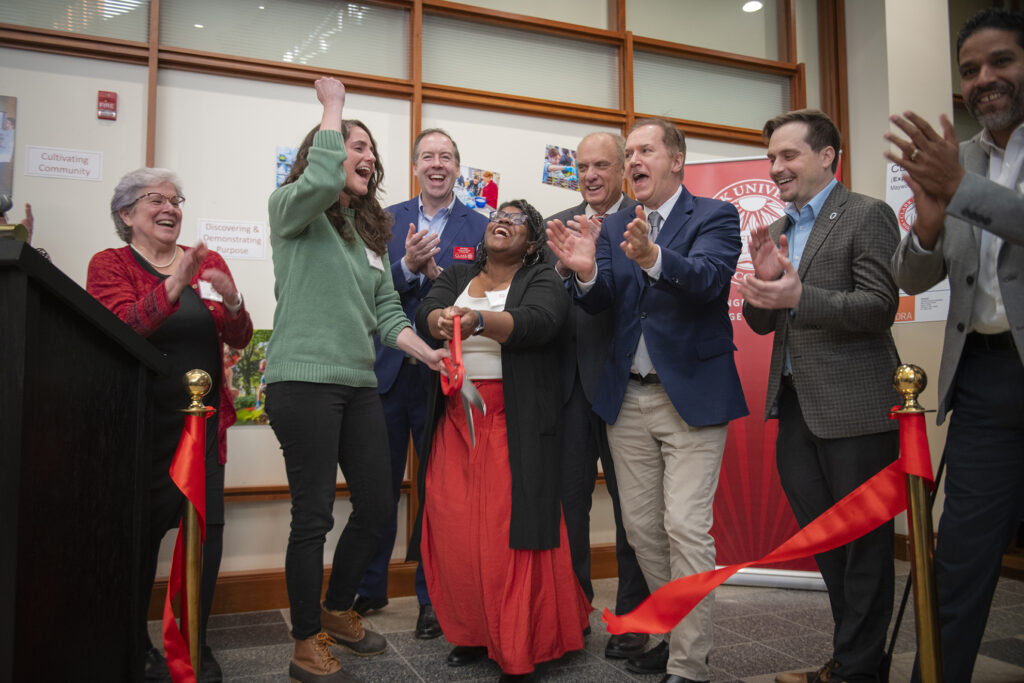
Clark is celebrating the opening of a state-of-the-art greenhouse that launches a new avenue of scientific research at the University, with implications for sustainable farming, food security, conservation, and other climate change-related efforts in and outside of New England.
Attached to the Cathy ’83 and Marc ’81 Lasry Center for Bioscience, the 1,725-square-foot Experimental Plant Investigation Center (EPIC) is critical to research being conducted by biology professors Chandra Jack and Kaitlyn Mathis, both of whom are affiliated with Clark’s School of Climate, Environment, and Society, set to open in Fall 2025. Each professor has a separate “grow area” to conduct research, avoiding cross-contamination of plants, insects, and microbes, and can individually control the temperature, humidity, and lighting. A third grow area will be open for other faculty and student projects, according to Jack.
“We’re here today to celebrate the opening of a new facility and to celebrate the work of the faculty and students who will contribute to a better, deeper understanding of plant science, agriculture, and other research that has an impact on the world,” President David Fithian told a crowd gathered on Jan. 15 to celebrate the EPIC lab’s opening and the Department of Biology’s annual open house highlighting faculty and student research.
“Many of you know our motto of challenging convention and changing the world. We really believe that.”
— president david fithian
Guests included Worcester Mayor Joseph Petty, Worcester City Councilor and educator Luis Ojeda, state Rep. John Mahoney, state Rep. David LeBoeuf ’10, and representatives from state Sen. Robyn Kennedy’s office, the Worcester Regional Chamber of Commerce, Worcester Public Schools, Regional Environmental Council, and Worcester Boys and Girls Club. Students from Claremont Academy and University Park Campus School also attended.
The EPIC lab ties into the research and scholarship by faculty and staff in Clark’s new School of Climate, Environment, and Society, which will open in fall 2025.
“Many of you know our motto of challenging convention and changing the world. We really believe that,” Fithian said. “The work we do every day in facilities like this, and with people who are in this room, allows us to make a major contribution.”
Biology Chair and Professor Deborah Robertson noted that Clark also is marking the 20th anniversary of the opening of the Lasry Center, the first LEED-certified building in Worcester.
The Biology Department’s move to the Lasry Center, “and the subsequent remodeling of the biophysics building across the street,” Robertson said, “resulted in the dismantling of the then-existing older greenhouse, with no concrete plans for replacement.
“It’s with great excitement that we celebrate the opening of this new facility, which provides state-of-the-art space for plant research and cultivation and opens up new possibilities for collaborations with members of the Clark community as well as the larger Worcester community,” she added. “We in biology are convinced the opportunities provided by this new space will be epic.”
“We’re really just beginning to explore ways that we can incorporate the new EPIC space into teaching our students.”
— Biology professor kaitlyn mathis
The EPIC lab will allow faculty and students in biology, biochemistry, environmental science, and other disciplines to expand their research related to climate change, sustainable agriculture, and urban and rural ecosystems. Their research could benefit farmers and consumers by potentially helping to protect food crops from insect pests and diseases, increase agricultural yields, and improve the environment by implementing sustainable solutions to grow and manage food crops and avoid the use of harmful pesticides.
Additional researchers may apply to Jack and Mathis to conduct research in the EPIC lab, which contains a common space dedicated for use by classes and students.
“Not only will undergraduates have the chance to participate in research projects using plants in both of our research labs, but also courses like Restoration Ecology and Biodiversity will include projects for students that use the space,” Mathis said.
“We’ve already had students from our Herban Gardeners club express interest in using the common space to start seeds for the urban gardens on campus,” she added. “We’re really just beginning to explore ways that we can incorporate the new EPIC space into teaching our students.”
Unlike older greenhouses at larger research universities, the EPIC lab uses LED lighting and relies on fewer windows, making it much more energy-efficient. Using 100 percent electric heating and cooling, the lab is connected to Clark’s cogeneration campus loop.
“The quality of the lab and the opportunity to do research year-round even exceeds that of some research-intensive universities with older greenhouses.”
— biology professor chandra jack
Jack says the EPIC lab provides a space “on par with” what she would receive if she were at a larger R1 doctoral university, rated as such by the Carnegie Classification of Institutions of Higher Education for “very high research activity.” Clark is a smaller doctoral institution, rated as R2 for “high research activity.”
“The quality of the lab and the opportunity to do research year-round even exceeds that of some research-intensive universities with older greenhouses that don’t necessarily hold temperature,” says Jack, whose research is funded by the National Science Foundation and the U.S. Department of Agriculture.
Project planning for the EPIC lab started in spring 2021; construction started in November 2023 and ended in September 2024.
According to Dan Roderick, associate vice president of facilities management, the addition of the EPIC lab to the Lasry Center involved a “100% team effort” from Clark facilities crews because everything — “the fire alarm, the electrical, the emergency backup, HVAC and mechanical systems, and plumbing systems” — had to be tied into the main building.
The project’s architects were Drummey Rosane Anderson Inc. of Waltham; the builders, Bowdoin Construction of Needham; and the project manager, Eric Wenzel of DND Construction Services in Hartford, Connecticut.
The EPIC lab builds upon Clark’s history of botanical research, which started with the gift of the University’s 26-acre Hadwen Arboretum in 1907 by noted horticulturist Obadiah Hadwen of Worcester. The Arboretum is being restored by Geography Professor John Rogan and his students.
An EPIC event
The celebratory opening of Clark’s new 1,725-square-foot Experimental Plant Investigation Center (EPIC) on Jan. 15 drew dozens of Clark faculty and students; Worcester politicians, schoolchildren, and community members; state legislators; and representatives from nonprofit organizations.
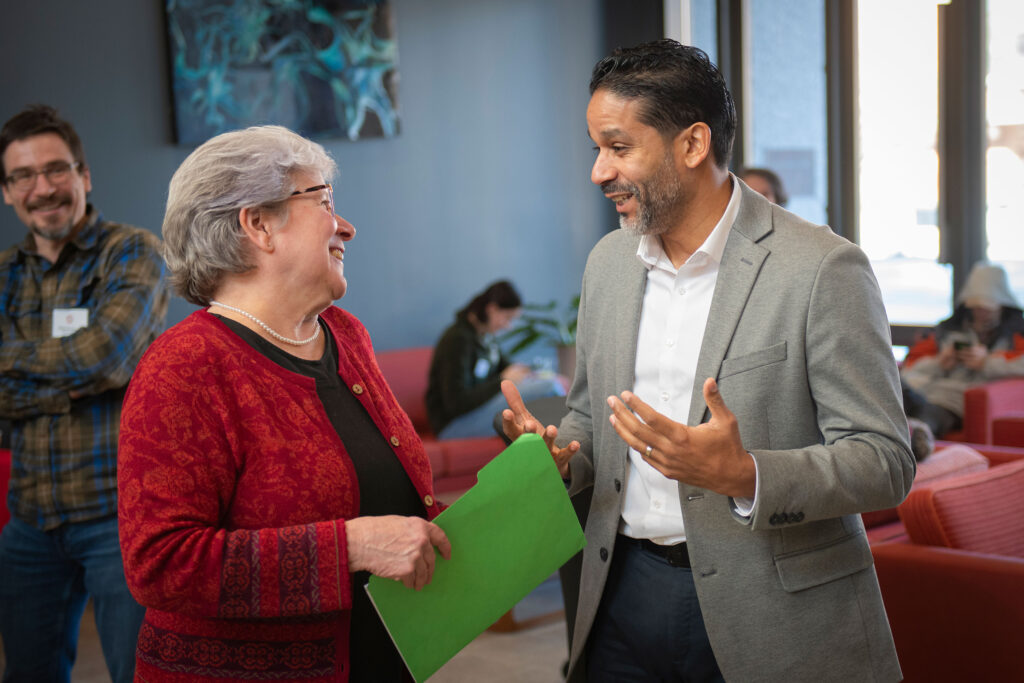
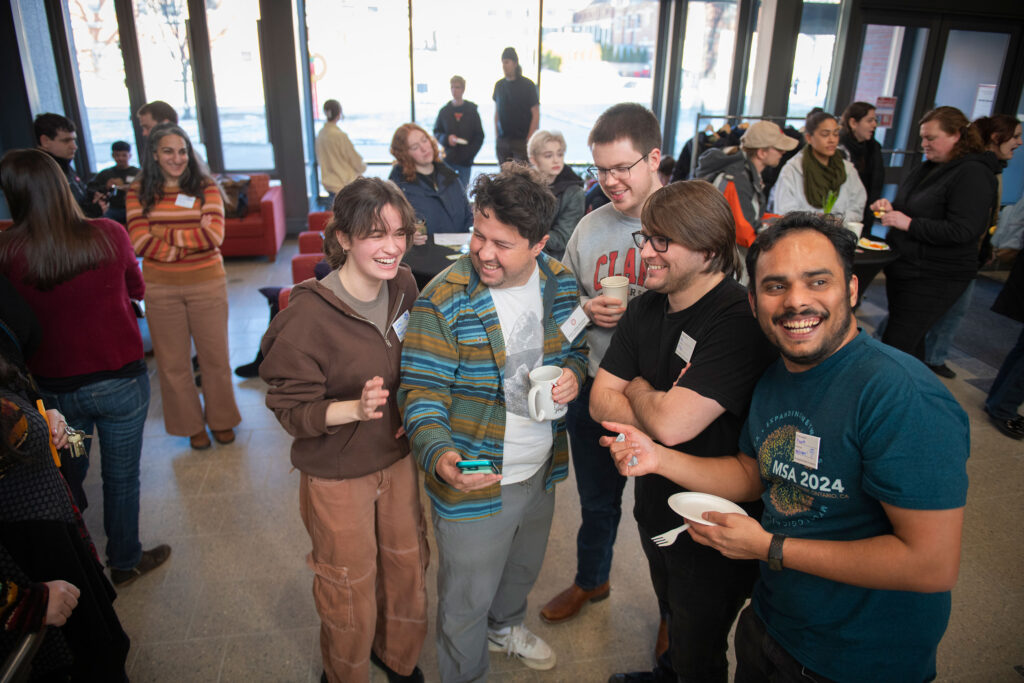
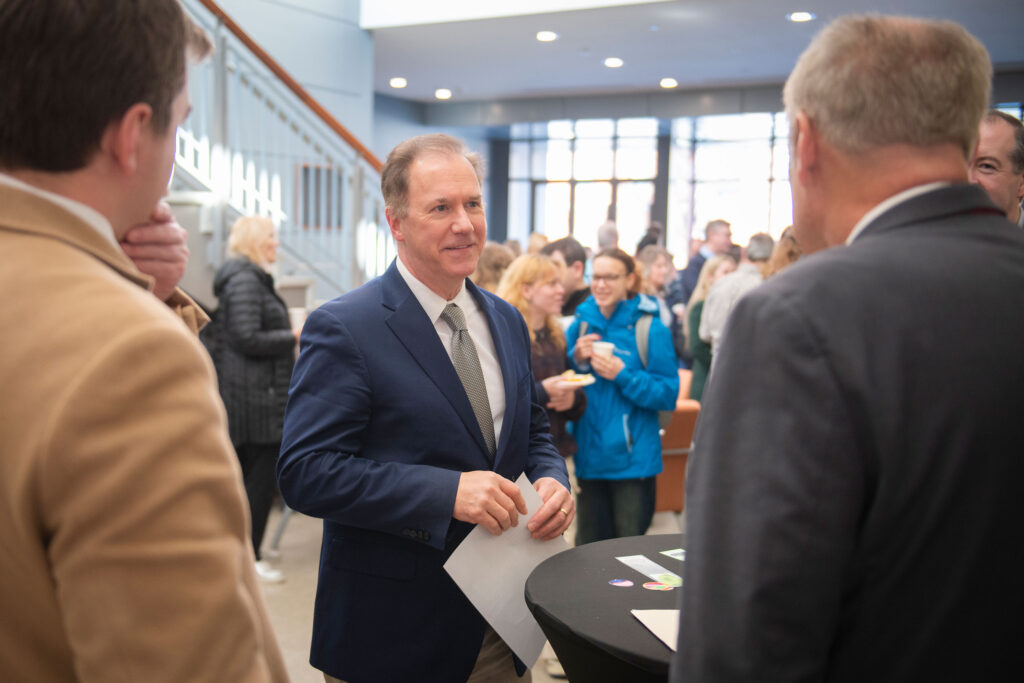
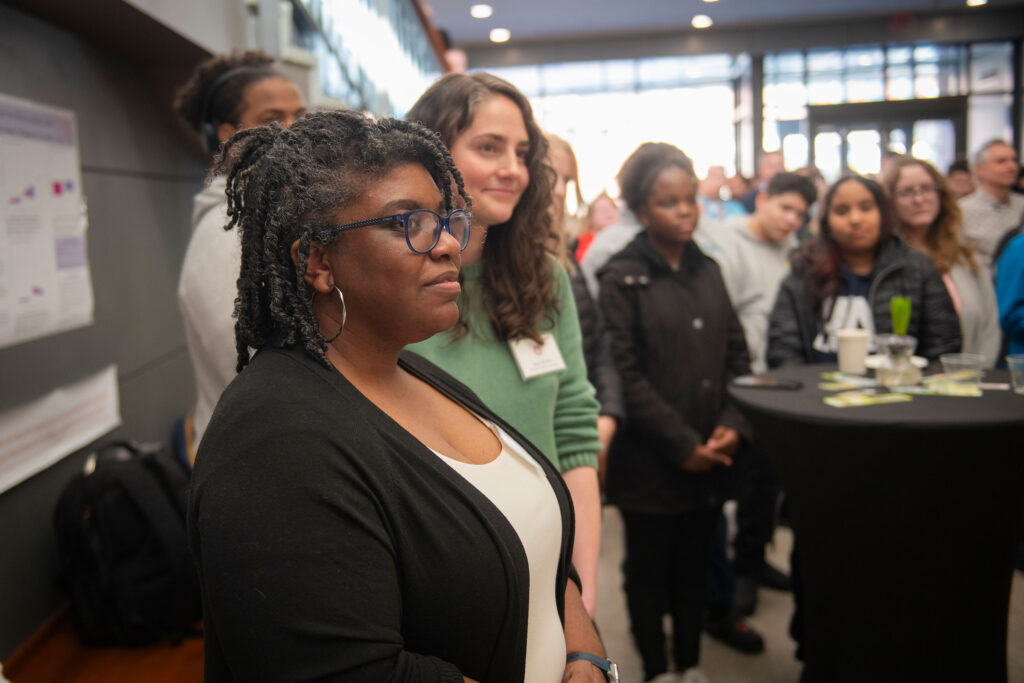
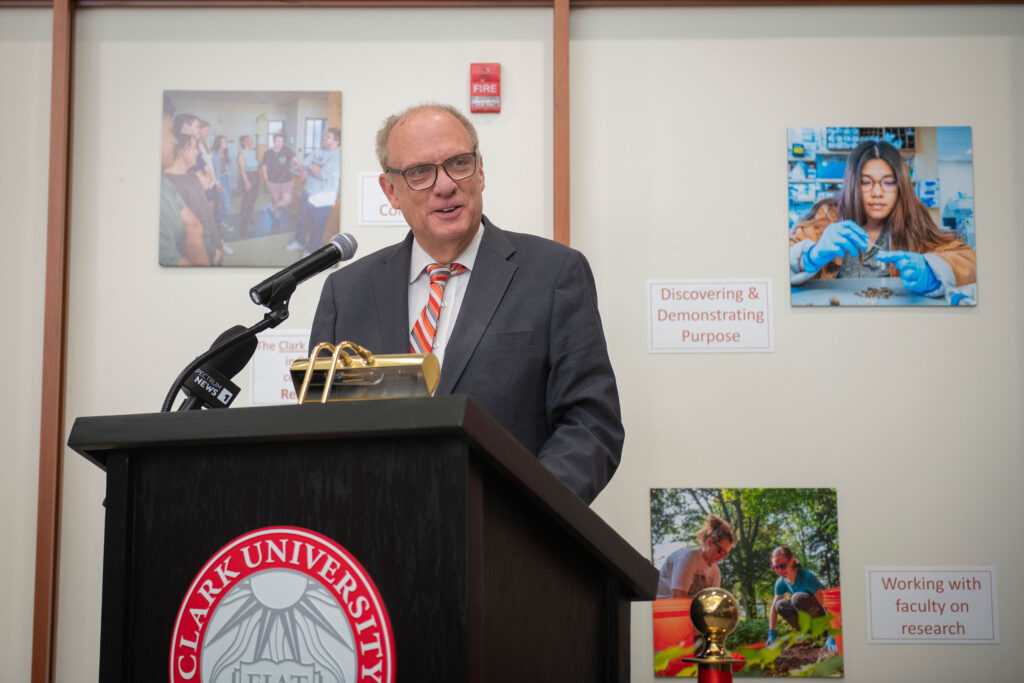
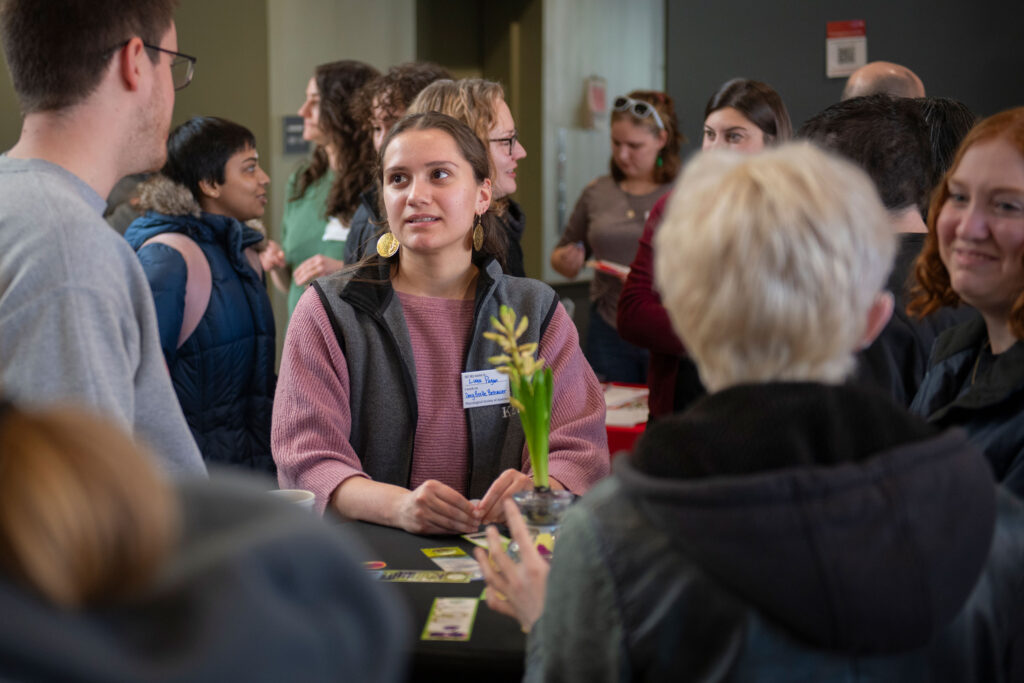
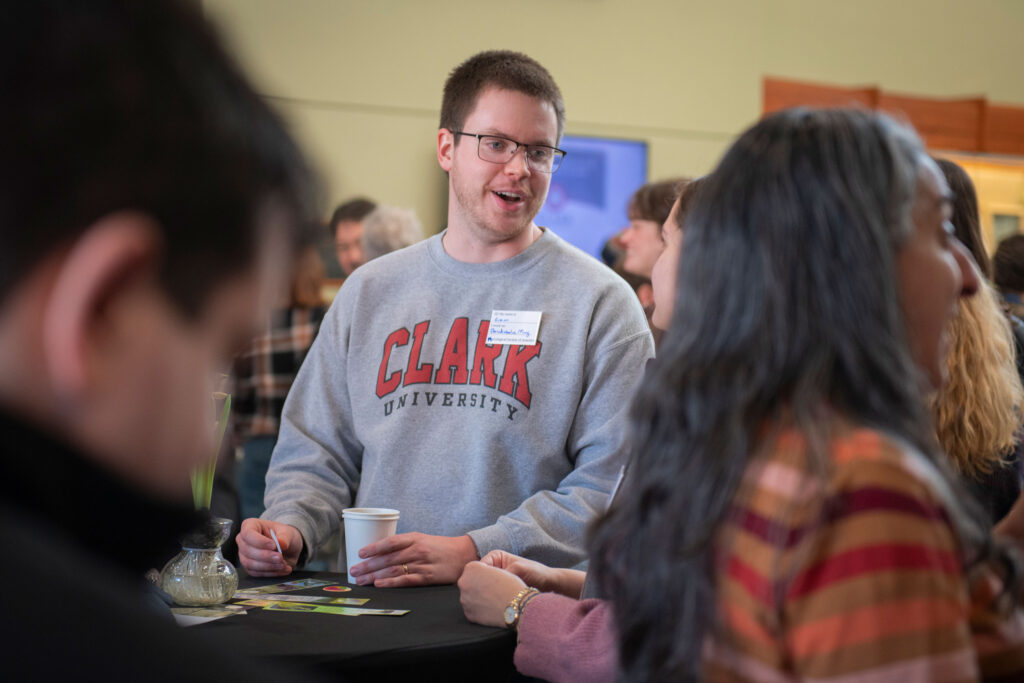
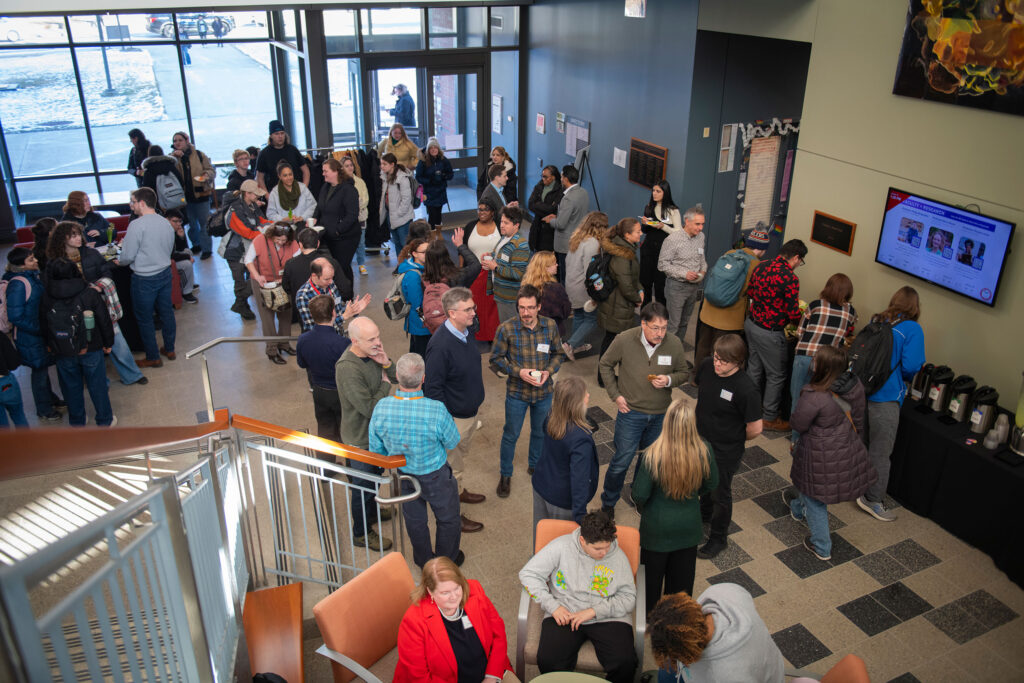
All photos by Steven King, University Photographer


